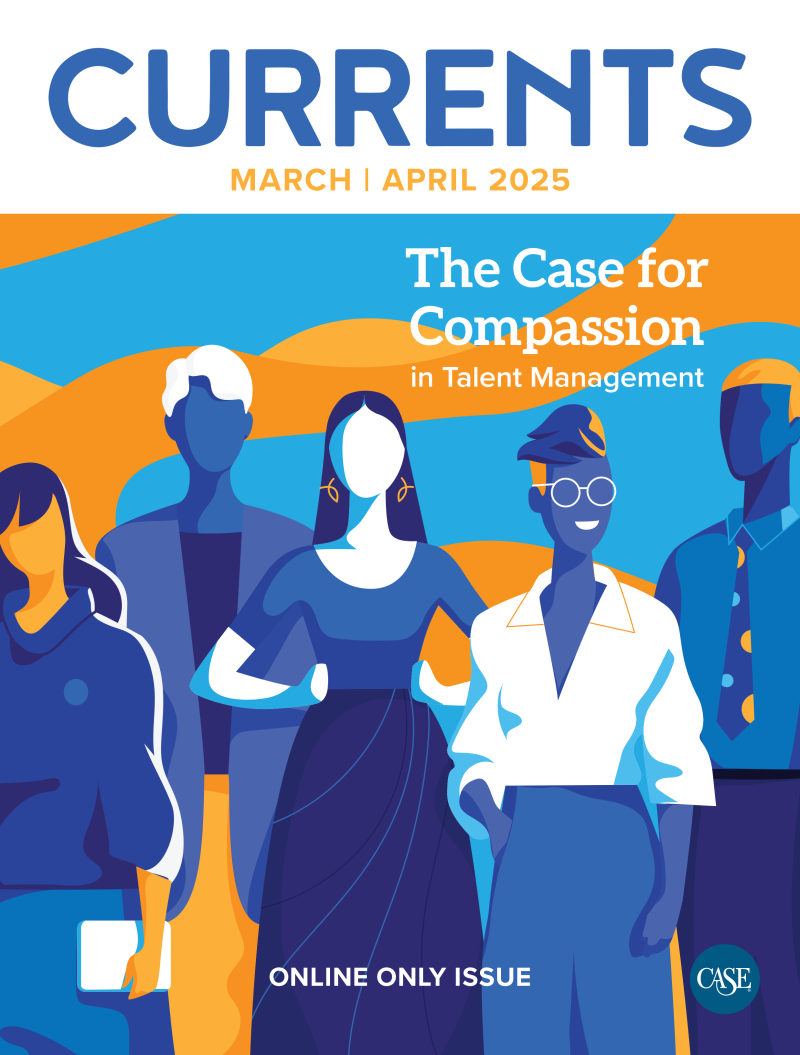Inside Development Officer Boot Camp

Good onboarding welcomes new colleagues into a team—like a welcome mat for the organization. That philosophy helps the University of California, Davis, U.S., start its newcomers in advancement off on the right foot.
ADVANCE WORK:
- Inside Development Officer Boot Camp
- Rebooting Annual Giving With a Campaign ‘For Everybody
- Transforming Lives: Investing in Workforce Development
In 2021, the development and alumni relations division there launched The Learning DO–Development Officer Boot Camp. It’s a comprehensive, centralized, nine-week academy for fundraisers. Current staff members deliver in-person training sessions covering topics from prospect identification and cultivation, donor-centered stewardship, closing gifts, UC Davis policies and tools, and more.
“That’s our true north: providing a foundation to allow our development officers to come into their own and learn the best ways of being successful in our work,” explains Lauren Kidd, Associate Vice Chancellor for School and Unit Programs, who spearheaded the project’s planning and now manages it. “We can’t do your dive for you, but we can build you a really great diving board to help you take that plunge.”
Participants go through boot camp together with a cohort of fellow newcomers. There are typically two cohorts each year and Vice Chancellor of Development and Alumni Relations Shaun Keister hosts a “graduation” at the end of boot camp. The program, which garnered a 2024 Circle of Excellence Award for talent management, has drawn positive feedback from both current and new staff. Overall, the division’s average tenure for development officers has grown by nearly two years since 2019; staff say boot camp has contributed to that.
Back in 2020, Kidd and her colleagues began their journey to build boot camp. One challenge they wanted to address, says Kidd, is that in an organization as large as UC Davis, it can be easy for a newcomer to feel lost. They also wanted to create a consistent and thorough learning experience for new hires.
“It’s a level-setting opportunity for everyone who comes into the organization, no matter what their background is,” says Gary Fisher, Managing Executive Director of Regional & International Development. He was a key part of planning boot camp and delivers the lesson on portfolio management. “They immediately get a group of people who are their ‘cohort’ and collaborators, and they learn what best practices at Davis look like.”
Today, 60 development officers have completed boot camp. Here, Fisher and Kidd share lessons about training and onboarding.
- Investing in good onboarding takes time—but doing it well sends staff a message. Boot camp didn’t come together overnight; it took staff more than six months to plan it. But it demonstrates that the organization is invested in staff from the start, Fisher notes.
- Collaboratively planning onboarding strengthens it. Colleagues across development and alumni relations worked together to brainstorm and develop boot camp modules. More than 25 staff deliver the lectures.
“Almost all of the organization was involved in the evolution of boot camp,” says Kidd. “I think that’s one of the reasons that it has sustained itself.”
- Onboarding and training content should evolve. “The content changes as we grow and evolve,” Fisher explains. “Content changes as technologies, metrics, and goals shift in the organization.”
The team has recently added a module on women in philanthropy and are working on a session about managing other staff. They collect feedback from participants at the conclusion of boot camp, too, to determine what they might adjust or reassess in the program.
Since its iteration, boot camp has also shifted from virtual to in-person engagement. It started online during the pandemic, but in 2022, the team shifted it to in-person lectures.
- A cohort can enrich new colleagues’ learning experience. The UC Davis model offers participants a “group of peers from day one,” says Fisher. “They can rely on one another and learn from one another.”
Anyone with solicitation responsibilities goes through boot camp, so cohorts may have members who work in annual giving, major giving, corporate engagement, and beyond—experienced managers as well as newcomers to the profession.
“They each have a tremendous amount to contribute, as teachers as well as learners,” says Kidd.
About the author(s)
Meredith Barnett is the Managing Editor at CASE.
Tags
Article appears in:

March - April 2025
DIGITAL-ONLY ISSUE—Why compassion matters more than ever in talent management.
Plus what universities and schools can learn from one another, how one school rebooted annual giving, neurodiversity in advancement, and more.










